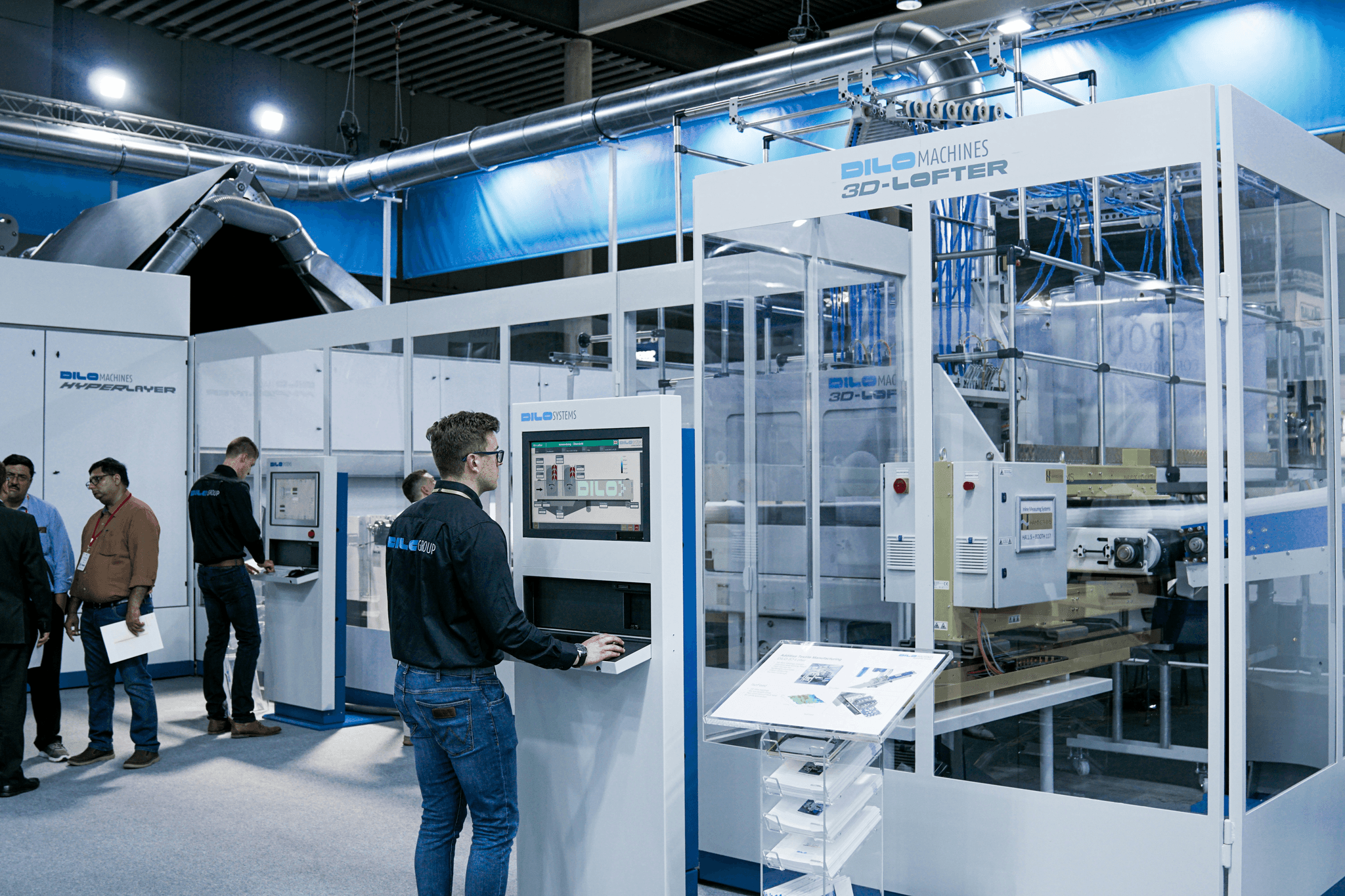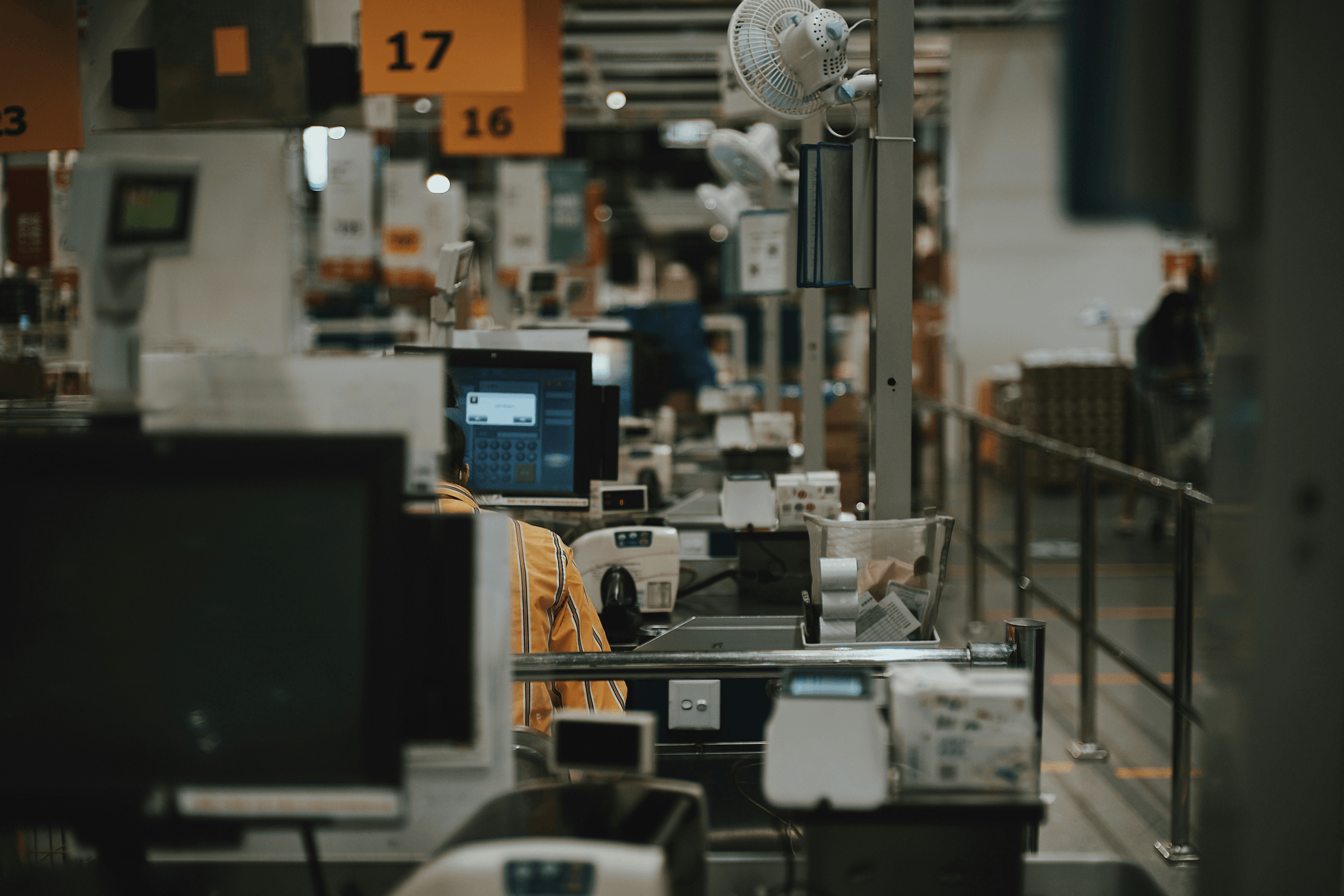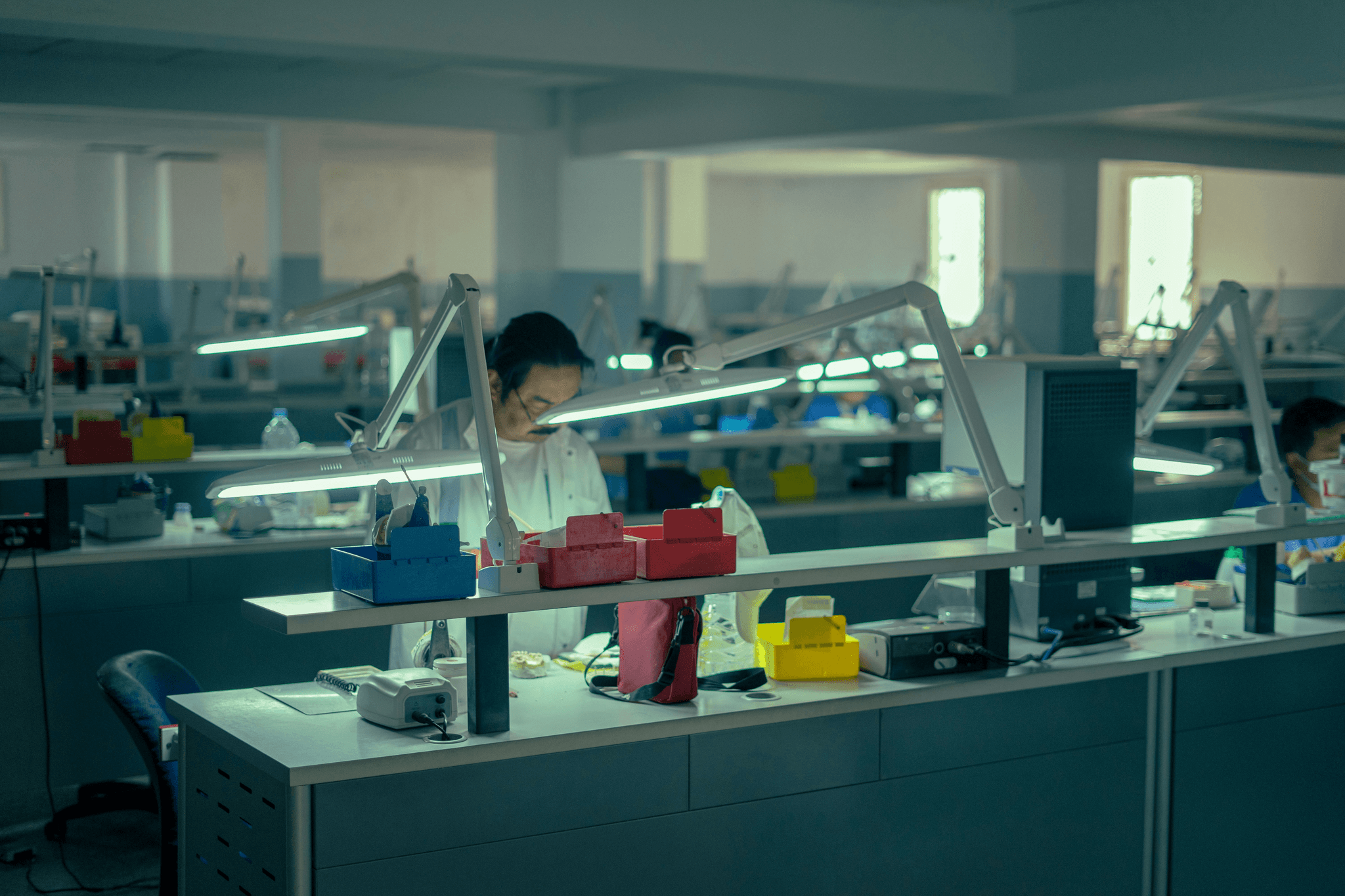Introduction

In the dynamic landscape of manufacturing and trade, ensuring product quality is paramount, particularly in China. The distinction between audits and quality inspections can often be blurred, yet both play crucial roles in maintaining high standards. Understanding these processes is essential for businesses aiming to thrive in an increasingly competitive environment.
Understanding Audits vs Quality Inspections
Audits and quality inspections serve different purposes but are equally vital for maintaining quality control standards. Audits typically involve a comprehensive examination of a company's systems and processes, often conducted by accounting firms or third-party auditors to ensure compliance with regulations like PCAOB inspection standards. In contrast, quality inspections focus on evaluating the products themselves, assessing their adherence to predefined criteria before they reach the market.
Importance of Quality Control in China
Quality control is particularly critical in China due to its position as a global manufacturing hub. With countless products flowing from factories to consumers worldwide, ensuring that these goods meet rigorous quality auditing standards is essential for brand reputation and consumer safety. Companies that prioritize effective quality control measures can mitigate risks associated with defective products and maintain competitive advantages.
The Role of China Inspection Pro
China Inspection Pro stands at the forefront of this landscape, providing professional services dedicated to enhancing product excellence through meticulous inspections. Our specialists rigorously examine every detail to ensure that your goods not only meet but exceed industry standards—transforming findings into actionable recommendations that sharpen decision-making processes. Backed by deep experience and advanced methodologies, we navigate complex challenges so your products satisfy market expectations while adhering to regulatory requirements.
Overview of Audits in China

In the dynamic landscape of manufacturing and production, understanding audits is crucial for maintaining quality and compliance. Audits or quality inspections in China serve as a fundamental tool for organizations aiming to uphold high quality control standards. With the involvement of accounting firms and specialized agencies, businesses can navigate the complex waters of quality auditing with confidence.
What Are Audits?
Audits are systematic evaluations designed to assess an organization’s adherence to established standards and regulations. In the context of China, these audits can encompass financial reviews, operational processes, and compliance checks, ensuring that businesses meet both local and international quality requirements. By conducting thorough inspections and audits, companies can identify weaknesses in their processes that may compromise product integrity.
Benefits of Quality Auditing
Quality auditing offers numerous advantages that extend beyond mere compliance; it acts as a catalyst for continuous improvement within organizations. By identifying areas for enhancement, companies can streamline operations, reduce waste, and ultimately improve customer satisfaction. Additionally, regular audits foster trust with stakeholders by demonstrating a commitment to transparency and accountability in quality control standards.
Common Audit Standards
When discussing audits in China, it’s essential to recognize the various common audit standards that organizations must adhere to. These include internationally recognized frameworks like ISO 9001 for quality management systems and PCAOB inspection guidelines for public accounting firms operating globally. Adhering to these standards not only ensures regulatory compliance but also enhances credibility among consumers who prioritize product excellence.
Exploring Quality Inspections

Quality inspections play a crucial role in ensuring that products meet the required standards before they reach consumers. In China, where manufacturing is a cornerstone of the economy, understanding what constitutes a quality inspection is vital for businesses looking to maintain their reputation and compliance. This section delves into the essence of quality inspections, highlighting their significance alongside audits in maintaining product excellence.
What Constitutes a Quality Inspection?
A quality inspection involves a systematic examination of products to ensure they conform to specified requirements and standards. Unlike audits, which primarily focus on processes and compliance with regulations, quality inspections are hands-on evaluations that assess the actual product's condition and performance. Companies like China Inspection Pro specialize in delivering professional services that scrutinize every detail, ensuring goods not only meet industry benchmarks but also exceed customer expectations.
During a quality inspection, various aspects such as dimensions, functionality, packaging, and labeling are thoroughly checked against established criteria. The goal is to identify any defects or deviations early in the production process so that corrective actions can be taken promptly. By implementing rigorous quality control standards during these inspections, businesses can mitigate risks associated with poor-quality products entering the market.
Key Quality Control Standards
Quality control standards serve as essential guidelines for conducting effective inspections across different industries in China. These standards include internationally recognized frameworks such as ISO 9001 and industry-specific criteria tailored to unique manufacturing environments. Adhering to these benchmarks ensures consistency and reliability in both product quality and inspection processes.
In addition to international standards, many companies adopt specific internal guidelines based on best practices observed within their sector or through lessons learned from past failures. For instance, some accounting firms may implement detailed checklists for their clients’ manufacturing processes to enhance overall efficiency while minimizing risks associated with subpar products reaching consumers. By aligning with established quality control standards during inspections, businesses can foster greater trust among stakeholders while enhancing brand reputation.
Differences Between Inspections and Audits
While both audits and quality inspections aim to uphold high-quality levels within organizations, they differ significantly in focus and execution methods. Audits generally encompass broader evaluations of systems and procedures used by companies—often conducted by external accounting firms—to ensure compliance with regulatory requirements like PCAOB inspections or financial reporting standards. On the other hand, quality inspections hone in on tangible products themselves; they assess whether items meet specified criteria before shipment.
Another key distinction lies in the timing of each process: audits often occur periodically or annually as part of an organization's overall governance strategy; conversely, quality inspections typically take place throughout production cycles or immediately prior to shipment when final assessments are critical for success. Furthermore, while audits may yield recommendations for improving internal controls related to financial practices or operational efficiencies—quality auditing focuses solely on enhancing product integrity through meticulous examination.
In summary, understanding these differences helps businesses make informed decisions about when to engage in audits versus conducting thorough quality inspections tailored specifically for their needs within China's dynamic marketplace.
The Process of Quality Inspections

Quality inspections are vital for ensuring that products meet the necessary standards before they reach consumers. In China, where manufacturing is a cornerstone of the economy, understanding the process of quality inspections can help businesses maintain their reputation and comply with regulations. This section will break down the steps involved in quality inspections, highlight the role of China Inspection Pro, and emphasize the importance of thorough inspections.
Steps Involved in Quality Inspection
The process of quality inspection typically begins with defining specific quality control standards tailored to the product being evaluated. Inspectors then conduct a pre-inspection meeting with stakeholders to discuss expectations and any particular areas of concern regarding audits or quality inspections in China. Following this, inspectors perform an on-site examination, which includes checking materials, evaluating production processes, and assessing finished products against established benchmarks.
After completing the on-site inspection, inspectors compile their findings into a detailed report that outlines compliance levels with relevant quality and audit standards. This report serves as a critical tool for decision-makers who need to understand potential risks or areas for improvement. Finally, based on these findings, actionable recommendations are provided to address any identified issues and enhance overall product quality.
Role of China Inspection Pro in Inspections
China Inspection Pro plays an integral role in facilitating effective quality inspections throughout various industries in China. With a team of skilled professionals adept at navigating both local regulations and international standards like PCAOB inspection guidelines, they ensure that every aspect of an inspection is conducted meticulously. Their expertise allows them to provide valuable insights into how businesses can improve their processes while maintaining compliance with stringent quality control standards.
Furthermore, China Inspection Pro's comprehensive approach includes not only identifying deficiencies but also recommending practical solutions tailored to each client's unique needs. By leveraging advanced methodologies and deep industry experience, they help companies minimize risks associated with poor-quality products or services that could tarnish their brand reputation. Their commitment to excellence ensures that clients receive thorough evaluations that lead to improved operational efficiency.
Importance of Thorough Inspections
Thorough inspections are crucial for safeguarding both consumer interests and brand integrity in today's competitive market landscape. When businesses invest time and resources into rigorous audits or quality inspections in China, they significantly reduce the likelihood of costly recalls or reputational damage stemming from subpar products reaching consumers' hands. Moreover, consistent adherence to established quality control standards fosters trust among stakeholders—including customers—who increasingly prioritize transparency and accountability.
Additionally, comprehensive inspections serve as a proactive measure against potential regulatory penalties that could arise from non-compliance with industry norms or safety requirements set forth by governing bodies worldwide. By prioritizing thoroughness during each inspection phase—be it through detailed assessments or regular follow-ups—businesses can cultivate a culture focused on continuous improvement rather than merely reacting when issues arise post-production.
In conclusion, understanding the steps involved in conducting effective quality inspections is paramount for success within China's dynamic manufacturing environment; partnering with experts like China Inspection Pro enhances this process significantly while promoting adherence to essential auditing practices across diverse sectors.
Choosing Between Audits and Inspections

Deciding between audits or quality inspections in China can be a complex process, influenced by various factors. Businesses must weigh the specific needs of their operations against the benefits each method offers. Understanding these distinctions is crucial for ensuring compliance with quality control standards while maintaining operational efficiency.
Factors to Consider When Deciding
When choosing between audits or quality inspections in China, several factors come into play. The nature of your products and the level of risk associated with them can significantly influence this decision. Additionally, understanding whether you need a thorough assessment of processes (audit) or a detailed examination of product quality (inspection) is vital for effective decision-making.
The scope of your project also matters; if it involves multiple suppliers or products, a comprehensive audit may be more beneficial than individual inspections. On the other hand, if you are focusing on one specific product line, quality inspections could provide targeted insights that lead to immediate improvements. Ultimately, aligning your choice with business goals will ensure that you maximize both quality and efficiency.
Industry-Specific Considerations
Different industries have unique requirements when it comes to audits and inspections in China. For example, manufacturing sectors often lean towards rigorous quality auditing to meet international standards such as those set by PCAOB inspection guidelines. Conversely, industries like food production may prioritize frequent quality inspections to ensure compliance with health regulations and safety protocols.
Understanding the regulatory landscape within your industry is essential for making informed decisions about whether to pursue audits or inspections. Some sectors might require more stringent oversight due to potential risks associated with product failures or safety hazards. By considering these industry-specific nuances, businesses can better navigate their options while ensuring adherence to relevant quality control standards.
Cost Implications and Budgeting
Cost implications are another critical factor when weighing audits versus quality inspections in China. Generally speaking, audits tend to be more resource-intensive than standard inspections due to their comprehensive nature and the expertise required from accounting firms specializing in this area. This means that businesses must budget accordingly if they opt for an extensive auditing process.
On the flip side, while individual quality inspections may seem less costly upfront, they can accumulate expenses if conducted repeatedly over time without addressing underlying issues highlighted during previous checks. Therefore, evaluating long-term costs versus short-term savings is essential when budgeting for either option—ensuring that your investment yields significant returns on product excellence and compliance with established standards.
Real-World Examples
In the realm of quality control, real-world examples provide invaluable insights into the effectiveness of audits and inspections in China. These narratives not only highlight successful strategies but also illustrate the consequences of neglecting quality standards. Understanding these cases can empower businesses to make informed decisions regarding their own quality assurance processes.
Successful Audit Case Studies
One prominent case involved a leading electronics manufacturer that implemented rigorous audits through a reputable accounting firm in China. By adhering to stringent quality auditing practices, they not only improved product reliability but also boosted their market reputation significantly. The outcome was a 30% reduction in defects and an increase in customer satisfaction, demonstrating how effective audits can transform operational effectiveness.
Another noteworthy example is a textile company that faced challenges with its supply chain compliance. By engaging in thorough inspections and audits, they identified key areas needing improvement, which led to enhanced quality control standards across their suppliers. This proactive approach resulted in a marked decrease in returns and complaints, showcasing how strategic auditing can directly impact brand loyalty.
Lastly, consider the case of a food processing firm that underwent PCAOB inspection as part of its commitment to transparency and accountability. The audit revealed critical gaps in their safety protocols that could have jeopardized consumer trust. By addressing these issues promptly, they not only ensured compliance but also strengthened their brand image among health-conscious consumers.
Impact of Quality Inspections on Brands
Quality inspections play a pivotal role in shaping brand reputation across various industries in China. For instance, an international toy company utilized comprehensive quality inspections to ensure that all products met safety regulations before reaching consumers' hands. This commitment to excellence helped them avoid costly recalls and fostered trust among parents concerned about product safety.
A cosmetic brand recently faced backlash due to subpar product quality that went unnoticed during initial production phases. After implementing robust inspection processes with China Inspection Pro's guidance, they were able to identify flaws early on and rectify them efficiently. The result was not just improved product lines but also regained consumer confidence as they prioritized transparency and accountability.
Moreover, an automotive manufacturer leveraged detailed inspections to adhere strictly to global quality control standards while producing vehicles for export markets. This diligence ensured that every vehicle met both local regulations and international expectations for performance and safety features. As a result, the brand gained significant traction globally due to its unwavering commitment to high-quality products.
Lessons Learned from Quality Failures
Quality failures often serve as cautionary tales for businesses navigating the complexities of audits or quality inspections in China. One infamous incident involved a smartphone manufacturer whose failure to conduct adequate pre-shipment inspections led to widespread complaints about device malfunctions post-launch. This oversight not only damaged their reputation but also resulted in substantial financial losses due to warranty claims.
Another lesson comes from a furniture retailer that neglected regular audits within its supply chain operations; this lapse resulted in serious compliance issues with environmental regulations affecting production processes. The fallout included hefty fines and damage control efforts that consumed resources better allocated elsewhere—highlighting how regular audit checks are essential for maintaining operational integrity.
Finally, consider the experience of an apparel company whose lackluster inspection procedures allowed defective garments into retail stores during peak season sales periods—leading customers straight toward competitors instead! Recognizing this misstep prompted them to revamp their entire approach towards both inspection and audit processes moving forward; ultimately saving face with loyal customers who expect nothing less than perfection from trusted brands.
Conclusion

In the ever-evolving landscape of manufacturing and commerce, understanding the distinction between audits and quality inspections in China is crucial for maintaining high standards. While both processes aim to enhance quality control, they serve different purposes and cater to varying needs. By recognizing these differences, businesses can better navigate the complexities of compliance, ensuring their products not only meet but exceed expectations.
Final Thoughts on Audits vs Inspections
Audits or quality inspections in China play a pivotal role in safeguarding product integrity and brand reputation. Audits often focus on the broader operational processes, assessing compliance with established quality control standards, while inspections zero in on specific products or batches to ensure they meet defined criteria. Understanding when to implement each can significantly impact a company’s overall quality and audit strategy.
Making Informed Decisions for Quality
When deciding between audits and inspections, it's essential to consider various factors such as industry-specific requirements, potential risks, and budget constraints. Engaging with reputable accounting firms or quality auditing specialists can provide valuable insights into which approach best aligns with your business goals. Ultimately, informed decisions lead to enhanced product reliability and customer satisfaction.
The Future of Quality Assurance in China
As global markets continue to demand higher standards of quality assurance, the landscape for audits or quality inspections in China will evolve accordingly. Innovations in technology and methodologies will likely streamline inspection processes while enhancing accuracy and efficiency. Companies that prioritize robust quality control measures today will be well-positioned to thrive amidst future challenges.
